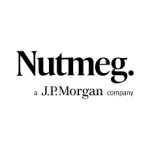Buy Facebook Shares – Best Trading App Picks 2021
Looking for a share trading app to trade Facebook that ticks all your boxes?
Share Trading Apps Comparison
| Trading Platforms: | Features:* | Go To Site: |
 | DEGIRO are one of largest and cheapest brokers in Europe. Access to over 50 markets in 30 countries. Low commissions/fees. User-friendly, simple platform. Investing involves risk of loss. | See Deal » |
 | Interactive Investor are the UK's #1 flat fee platform. Over 350,000 customers. Capital at risk. | See Deal » |
 | AJ Bell offers overseas trading in 24 international markets. Capital at risk. | See Deal » |
 | IG Trade & invest with the world's leading online trading provider.** Trade over 17,000 markets with spread bets and CFDs and invest in thousands of global shares & ETFs. Spread bets and CFDs are complex instruments and come with a high risk of losing money rapidly due to leverage. 70% of retail investor accounts lose money when trading spread bets and CFDs with this provider. You should consider whether you understand how spread bets and CFDs work, and whether you can afford to take the high risk of losing your money. Capital at risk. | See Deal » |
 | SAXO Access over 30,000+ stocks across 60+ exchanges worldwide. Ultra competitive pricing. Benefit from extensive charting with 50+ technical indicators, integrated Trade Signals and innovative risk management tools. Investing involves risk of loss. | See Deal » |
 | Hargreaves Lansdown The UK's #1 broker. Price improvement service helps you get the best price for your shares. Capital at risk. | See Deal » |
*Please note that additional fees may be applied by platform/App providers for their services. ** No 1 For CFDs and spread betting, based on revenue excluding FX (published financial statements, October 2021).
Facebook (FB)
With a market cap of £967.10 bn* Facebook engages in building online products that allow people to connect through mobile devices. As well as Facebook, the Company owns Instagram, Messenger, Whatsapp and Facebook Reality Labs.
According to Hargreaves Lansdown: “
Advertising revenue is Facebook’s bread and butter, with marketing teams paying handsomely to make the most of the data footprints users leave behind. With around half the world’s population logging onto one of Facebook’s apps (the obvious one, plus Instagram and WhatsApp), Facebook’s significance isn’t going anywhere.
As one Facebook analyst put it, ”Covid has accelerated the obvious…everything is going digital.” Which means an accelerated shift to online shopping – a higher margin source of ad revenue for Facebook. And the group is far more exposed to shopping than service advertising – like travel. The tailwinds will make comparisons more difficult, but is still a net positive in our opinion.
Added to that, Facebook’s plans to build a so-called metaverse, a virtual space where users interact in the form of avatars, already popular in the gaming world. This is little more than an ambition for Facebook at the moment, but the insularity bred by lockdowns could act as a catalyst for users. If the idea comes to fruition, it could be a valuable income source – having users become even more immersed in its stable of social networks would ultimately mean advertisers are willing to part with more money for the data those users leave behind.
As ever though, you have to spend to stay ahead in tech, which is reflected in an ever-increasing research and development budget. Despite this, profits are still growing – but revenues are expected to mellow compared to the heady growth of late, so margins could come under pressure. The group is spending heavily on its data centres and networks in particular.
Facebook’s huge scale means increased investment is needed to keep regulators happy – particularly around security and compliance measures. Changes to the Apple operating system and increased European regulation both have the potential to disrupt ad revenues too. This isn’t the first time Facebook’s stared down the barrel of a regulatory or privacy problem, and it won’t be the last.
We think the core business remains attractive because of Facebook’s unrivalled reach into our lives. With that strength in mind, the share price valuation is also worth considering. However, investors need to be prepared to accept the external risks – Facebook’s firmly in the political spotlight so ups and downs are likely”.
Trading or investing in Facebook – What is the difference?
Trading Facebook:
“If you are looking to trade the FTSE to make short term profits you can use products such as CFDs and spread bets to speculate on Facebook’s share price increasing or decreasing without having to take direct ownership of the shares themselves”.
CFDs (Contracts For Difference) and spread betting are leveraged products, which means you can gain full exposure to the FTSE 100 through a stock while only putting down a small deposit. While this magnifies possible profits, it does the same for losses.
CFDs & spread bets are popular among short term traders as profits and losses are realised immediately – making it faster to open and close trades.
However, this doesn’t mean you can’t use them for longer-term positions too.
You’d just need to consider the costs involved in maintaining a position – such as overnight funding – and the bet duration as spread bets do have fixed terms.
They also enable you to buy and sell shares online without ever owning the underlying asset. This has tax benefits and means you can trade both rising and falling markets (Tax laws are subject to change).
Investing in Facebook
As an investor you will be looking to invest in Facebook in the hope that over time the Company grows & generate good profits.
As an investor you are typically investing for the longer term e.g. 5 years or more is normal.
When you buy shares you become a part owner of Facebook and gain shareholder rights including any income that is paid as dividends.
With profits you make on share trading capital gains and dividends earned may be subject to tax at your personal rate. Tax can be mitigated if you trade within an ISA or Self Invested Personal Pension account.
How To Buy Facebook Shares
-
-
- Select a share platform
- Open your share account – To do this you will need your bank details and national insurance number
- Fund your account – You will need to fund your a/c with a debit or credit card or bank transfer
- Search for Facebook using the stock code – Type in the stock code FB into the search box
- Check out the latest info and price Facebook shares – Some platforms offer free research and analysis
- Buy Facebook – Nice and easy!
-
-
Important Risk Information:
No news, feature article or comment should be seen as a personal recommendation to invest. Prior to making any decision to invest, you should ensure that you are familiar with the risks associated with a particular plan. If you are at all unsure of the suitability of a particular product, both in respect of its objectives and its risk profile, you should seek independent financial advice.
The value of shares, ETFs and ETCs bought through a share dealing account, a stocks and shares ISA or a SIPP can fall as well as rise, which could mean getting back less than you originally put in. Past performance is no guarantee of future results.
Spread bets and CFDs are complex instruments and come with a high risk of losing money rapidly due to leverage. Between 67%-70% of retail investor accounts lose money when trading CFDs. You should consider whether you understand how spread bets and CFDs work, and whether you can afford to take the high risk of losing your money. Professional clients can lose more than they deposit. All trading involves risk.
Tax treatment of ISAs depends on your individual circumstances and is based on current law which may be subject to change in the future. ISA transfer charges may apply, please check with your provider.
Tags





